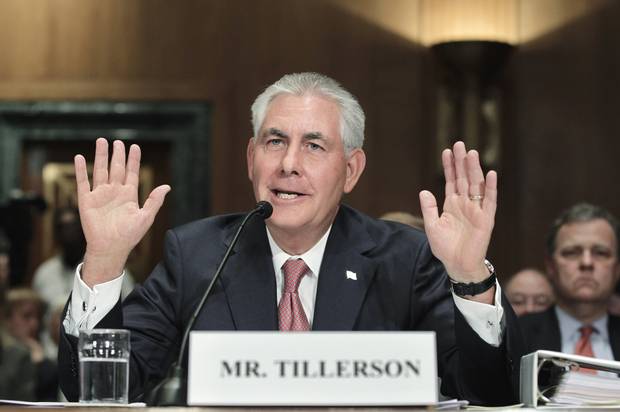Top-shelf executive pay packages at many of the largest U.S. energy companies shrank last year as activist investors pushed firms to narrow their oil empires and steer more capital to shareholder pockets.
As industry investment returns have stagnated, Big Oil companies and midsize producers are reluctantly ceding ground to proxy advisers like Glass Lewis and Institutional Shareholder Services, which have pressed companies to tie the bulk of their executive pay to long-term incentives like stocks and option awards. That’s where many of the large oil companies trimmed compensation packages last year, regulatory filings show.
”We’ve always had this tension in the energy industry around whether company performance is based on leadership or commodity prices,” said Chris Crawford, chief operating officer for Houston executive compensation adviser Longnecker & Associates.
Since shareholders wring the most money out of oil companies when stock prices rise, there’s a sense that executives should, too, Crawford said.
”Companies are tying compensation programs back into that stock price,” he said. ”It’s a win-win for shareholders and a lose-lose for executives.”
Exxon Mobil Corp. CEO Rex Tillerson’s total compensation dropped by $12.1 million to $28.1 million in 2013. Tillerson’s total pay in 2012 was boosted by a $13 million increase in the value of his pension and deferred compensation, which was unchanged in 2013.
John Watson, chief executive of San Ramon, Calif.-based Chevron Corp., saw his compensation fall by $8.2 million to $24 million in 2013.
Among all the top executives listed in regulatory filings for the two energy giants, only one got a raise in total pay last year - a $75,000 bump to $5.1 million for Chevron’s general counsel.
Houston-based independent oil company ConocoPhillips stood out among the largest U.S. producers, hiking CEO Ryan Lance’s total pay by $4.2 million to $23.4 million last year.
Josh Henke, a managing director at Longnecker, said activist shareholders and proxy advisers have held much more sway with smaller, independent oil producers. In 2013, investors shook up management teams and urged many producers to sell off billions in assets. They pushed for greater shareholder rewards like stock buybacks and higher dividends.
Energy investments have underperformed global markets by 27 percent over the last three years, according to BlackRock, the world’s largest money manager.
The Dodd-Frank Act of 2010 gave shareholders a tighter leash on executive pay with a rule known as ”say-on-pay,” letting investors vote on proposed pay packages. While the votes are not legally binding, they put significant pressure on corporate decision-making.
Houston-based Apache Corp. cut CEO G. Steven Farris’ compensation by $5.8 million to $11.2 million, and Anadarko Petroleum Corp., based in The Woodlands, trimmed CEO Al Walker’s pay by $2.7 million to $16.9 million last year.
William Thomas, CEO of Houston-based EOG Resources, got a $1.5 million raise to $8.8 million in total pay, but that came in a year when he ascended to the top job. Thomas had served as president of the company since 2011 and became CEO in July.
Occidental Petroleum Corp., which is moving its headquarters to Houston, cut CEO Stephen Chazen’s pay by $21 million to $6.9 million last year.
While oil companies are shaving pay at the highest level, some are using the leftover money to subsidize higher wages for senior-level executives, which helps in an ultracompetitive industry, Henke said.
”There’s such a large gap in the market for talent,” Henke said. ”They’re looking for the best use for those dollars, and they’re using them to attract and retain executives.”













To post a comment, log into your chosen social network and then add your comment below. Your comments are subject to our Terms of Service and the privacy policy and terms of service of your social network. If you do not want to comment with a social network, please consider writing a letter to the editor.